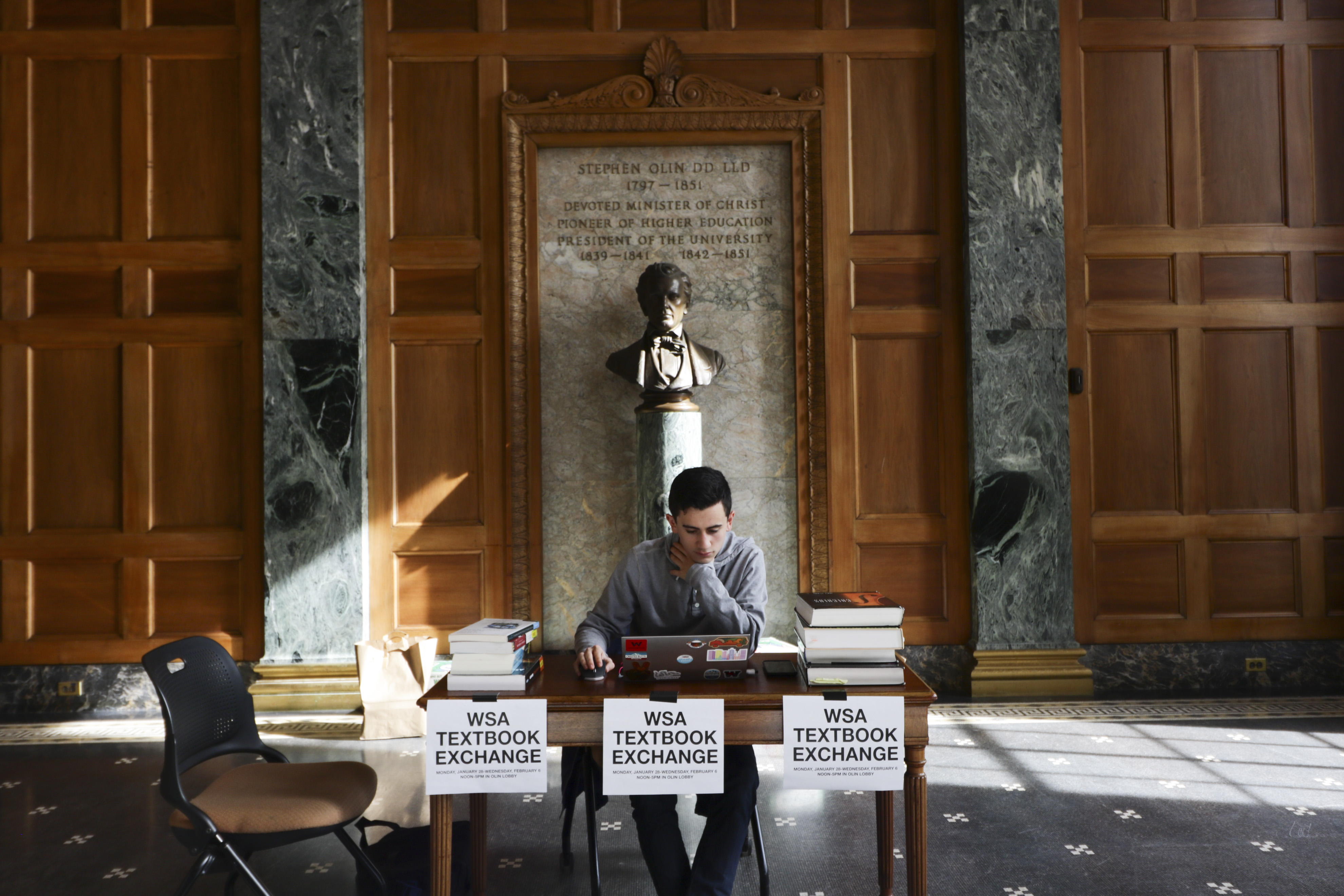
Following the Wesleyan Student Assembly (WSA) Textbook Exchange Program’s (TEP) soft launch in the beginning of the Fall 2018 semester, the program accumulated around 125 books for sale and sold 10. In Fall 2017, WSA Senator and TEP Operations Director Jake Kwon ’21 and WSA Senator and TEP Executive Editor Ariel Deutsch ’21 wanted to streamline the textbook listing process, and began working on the program back in Spring 2018.
Moving forward, the TEP directors hope to increase the number of books they have listed and publicize the program in order to collectively save students more money. The Tufts Community Union (TCU) Textbook Exchange, which the WSA’s TEP is modeled off of, saved its students $77,000 as of Feb. 9, 2018.
“If everyone ended up participating in the program, I think it would be really good for the students,” Kwon said. “It would be such a financially effective program.”
The TEP runs during Drop/Add and finals week each semester. They set up a table where students can drop off their books and set the price for each book. Larger textbooks are usually listed at $25-30, while smaller books are listed at $5-15. Students can see the prices that their same textbook is currently listed at and choose to price their book similarly, lower if they want to get rid of the book quicker, or higher if they wish to turn a profit.
When students wish to buy a textbook through the TEP, they can see the spreadsheet where all the available textbooks are listed and then go to the TEP table in Olin Library, which is set up at particular times during the semester, to pick up their book. A TEP volunteer retrieves the book, and the purchaser sends money through Venmo to the student who listed the book, as the TEP doesn’t earn any money and simply facilitates the transactions.
As the number of books increases, the TEP wishes to find a space where they can display all the available books so students can more easily browse the textbooks they wish to buy and the volunteers do not have to dig through the books they have behind the desk. Previously, the TEP set up a table in Olin Library and enlisted the help of Caleb T. Winchester Librarian Andrew W. White and Outreach & Academic Engagement Librarian Emily Voss to secure boxes and find space to set up a table.
To increase the number of books listed and sold, the TEP increased its marketing push under WSA Senator and TEP Marketing Director Ben Garfield ’22 for its finals week opening during the Fall 2018 semester. Garfield hopes that the program can eventually minimize student costs for textbooks, even coming close to eliminating expenditures for standardized introductory course textbooks.
“If we can make it successful, if we can get enough books in there, that’ll really make a difference for people,” Garfield said. “I think it’ll be a few years before we’re there, and I’d hope that maybe we’d be getting close to that by the time I graduate.”
The TEP directors also hope to begin marketing the TEP to first-year students once they arrive at the University so they are in the habit of using the TEP. One of the challenges the directors are facing is that sophomores, juniors, and seniors are already accustomed to turning to RJ Julia or Amazon for their textbooks, which Garfield acknowledges is still a useful option considering the wide range of books required across various syllabi that aren’t listed in the TEP.
Deutsch hopes that the TEP can help to offset the costs of rising textbook prices as more students use the program.
“This program is in no means a solution to this nationwide epidemic, but rather a temporary solution that will hopefully start more long-term solutions at Wesleyan and hopefully at other campuses,” Deutsch said.
Jocelyn Maeyama can be reached at jmaeyama@wesleyan.edu.


Leave a Reply